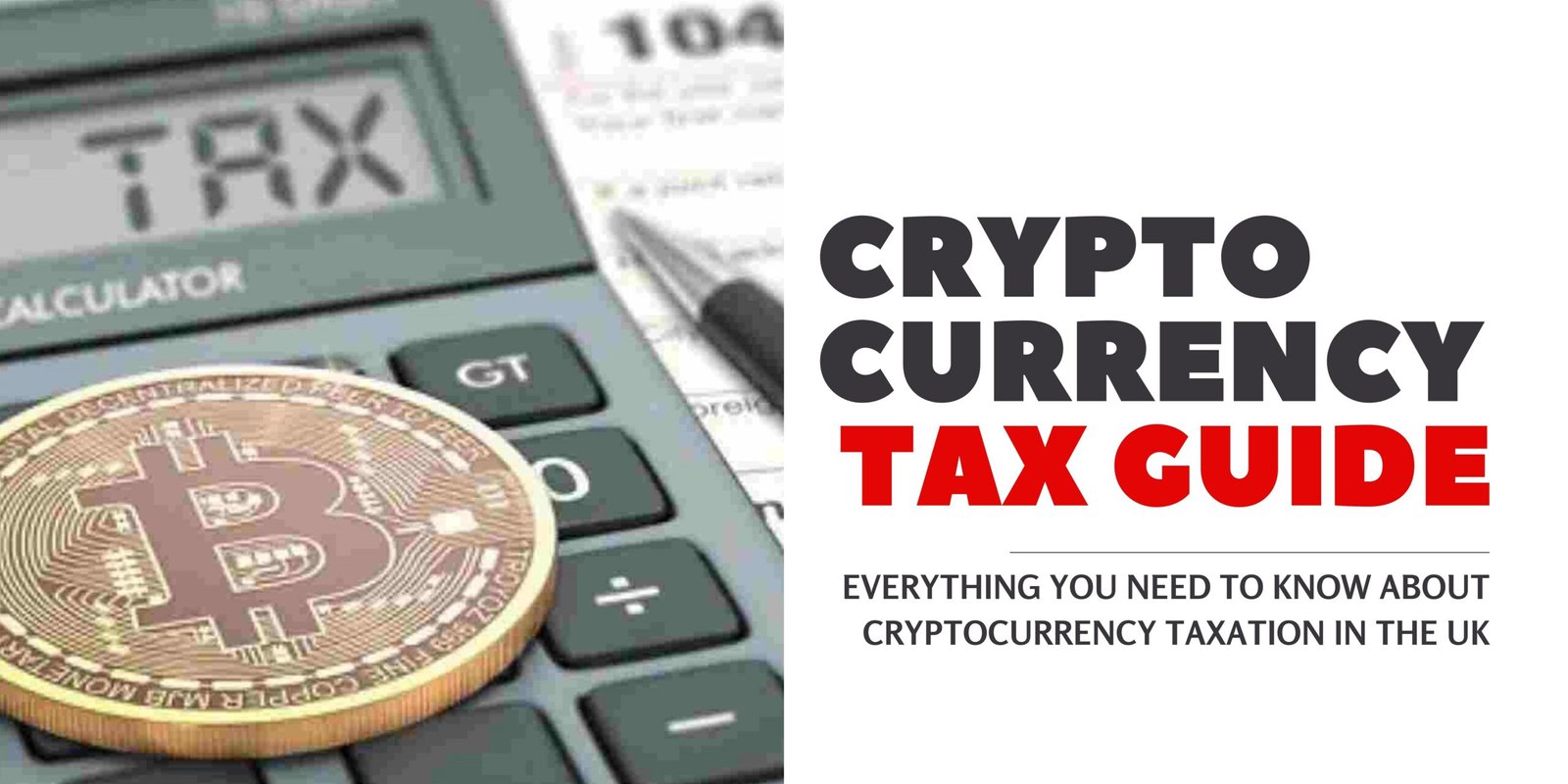Due to its potential for high returns, cryptocurrency has recently grown in popularity. The tax ramifications of purchasing, selling, and trading cryptocurrencies, however, have grown to be a significant concern as their popularity has increased. The UK government has acknowledged this problem and published rules for taxing cryptocurrencies. Everything you need to know about cryptocurrency taxation in the UK is covered in this Crypto Tax UK Guide.
Introduction
As cryptocurrencies become more popular, governments worldwide are grappling with how to tax them. The UK government has taken steps to guide cryptocurrency taxation. This UK Crypto Tax Guide will explain how cryptocurrencies are taxed in the UK and what you need to know to stay compliant.
What is Cryptocurrency?
Digital currencies known as “cryptocurrency” use cryptography to safeguard transactions and regulate the creation of new units. Cryptocurrencies work decentralized and without a central bank, unlike conventional money.

How are Cryptocurrencies Taxed in the UK?
Cryptocurrencies are subject to capital gains tax in the UK. This means that if you buy, sell, or trade cryptocurrencies, you will be subject to capital gains tax on any profit you make. The tax rate for capital gains tax depends on your income tax bracket. If you are a basic rate taxpayer, the tax rate is 10%, while if you are a higher or additional rate taxpayer, the tax rate is 20%.
Crypto Tax UK Guide 2023
Suppose you are a UK taxpayer who bought, sold, or traded cryptocurrencies. In that case, you must be aware of the tax implications. In this section, we will cover everything you need to know about cryptocurrency taxation in the UK.
Cryptocurrency as Property
The UK government has classified cryptocurrencies as property, subjecting them to capital gains tax. This means that if you profit from selling, trading or exchanging cryptocurrencies, you will be subject to capital gains tax.
Trading Cryptocurrencies
If you trade cryptocurrencies, you will be subject to capital gains tax on your profits. You will also be able to offset any losses against your gains. It’s important to keep accurate records of all your trades, including the date and time of the transaction, the value of the cryptocurrency at the time of the transaction, and any fees or commissions paid.
Mining Cryptocurrencies
If you mine cryptocurrencies, you will be subject to income tax on the value of the coins you receive as income. You will also be able to claim any expenses you incur in the mining process, such as electricity costs and equipment.
Paying for Goods and Services with Cryptocurrencies
If you pay for goods or services with cryptocurrencies, you will be subject to capital gains tax on any profits you make. Receive cryptocurrencies as payment for goods or services. You will also be subject to income tax on the coins you receive.
Gifts and Donations
Give or receive cryptocurrencies as gifts or donations. You will be subject to capital gains tax on your profits. Receive cryptocurrencies as a gift or donation. You will also be subject to income tax on the coins you receive.
Inheritance Tax
Cryptocurrencies are subject to inheritance tax in the same way as other assets. If you inherit cryptocurrencies, you will need to include them in the estate of the deceased when calculating inheritance tax.
Conclusion
Cryptocurrency taxation is a complex issue, and it’s essential to understand your tax obligations if you buy, sell, or trade cryptocurrencies in the UK. The UK government has issued guidelines on cryptocurrency taxation, and it’s crucial to stay up to date with any changes or updates to these guidelines. Remember to keep accurate records of all your cryptocurrency activities, including trades, purchases, and sales. If you need clarification about your tax obligations, seek professional advice to avoid any penalties or legal action.
In conclusion, the UK Crypto Tax Guide: Everything You Need to Know About Cryptocurrency Taxation in the UK is a must-read for anyone involved in cryptocurrency activities. It covers everything you need to know about cryptocurrency taxation in the UK, including how cryptocurrencies are taxed, trading, mining, paying for goods and services, gifts and donations, and inheritance tax. Remember to stay compliant with the guidelines and seek professional advice if you need clarification on your tax obligations.
Further Reading: Check if you need to pay tax when you sell cryptoassets
May Be useful:
Frequently Asked Questions about UK Crypto Tax
How are cryptocurrencies taxed in the UK?
Cryptocurrencies are subject to capital gains tax in the UK. This means that if you buy, sell, or trade cryptocurrencies, you will be subject to capital gains tax on any profit you make. The tax rate for capital gains tax depends on your income tax bracket. If you are a basic rate taxpayer, the tax rate is 10%, while if you are a higher or additional rate taxpayer, the tax rate is 20%.
How are trading cryptocurrencies taxed in the UK
If you trade cryptocurrencies, you will be subject to capital gains tax on your profits. You will also be able to offset any losses against your gains. It’s important to keep accurate records of all your trades, including the date and time of the transaction, the value of the cryptocurrency at the time of the transaction, and any fees or commissions paid.
How is mining cryptocurrencies taxed in the UK?
If you mine cryptocurrencies, you will be subject to income tax on the value of the coins you receive as income. You will also be able to claim any expenses you incur in the mining process, such as electricity costs and equipment.
How is inheritance tax applied to cryptocurrencies in the UK?
Cryptocurrencies are subject to inheritance tax in the same way as other assets. If you inherit cryptocurrencies, you will need to include them in the estate of the deceased when calculating inheritance tax.
Are there any tax exemptions for cryptocurrencies?
No, there are currently no tax exemptions for cryptocurrencies in the UK. They are subject to the same tax rules as other assets.
Can I claim expenses related to my cryptocurrency activities?
Yes, you can claim expenses related to cryptocurrency activities, such as electricity costs and equipment, if you are mining cryptocurrencies. You can also claim fees and commissions paid on trades.
Disclaimer: This blog post is for informational purposes only and should not be considered as professional tax advice. The author and publisher of this post are not responsible for any decisions made based on the information provided. It is recommended that you consult with a tax professional or accountant for personalized tax advice related to cryptocurrency taxation in the UK. The reader assumes all risks and responsibilities associated with using the information in this post.
You May Also Like
Top 7 Cryptocurrency Exchanges in UK
Top 16 Cryptocurrencies under 1 GBP in UK

